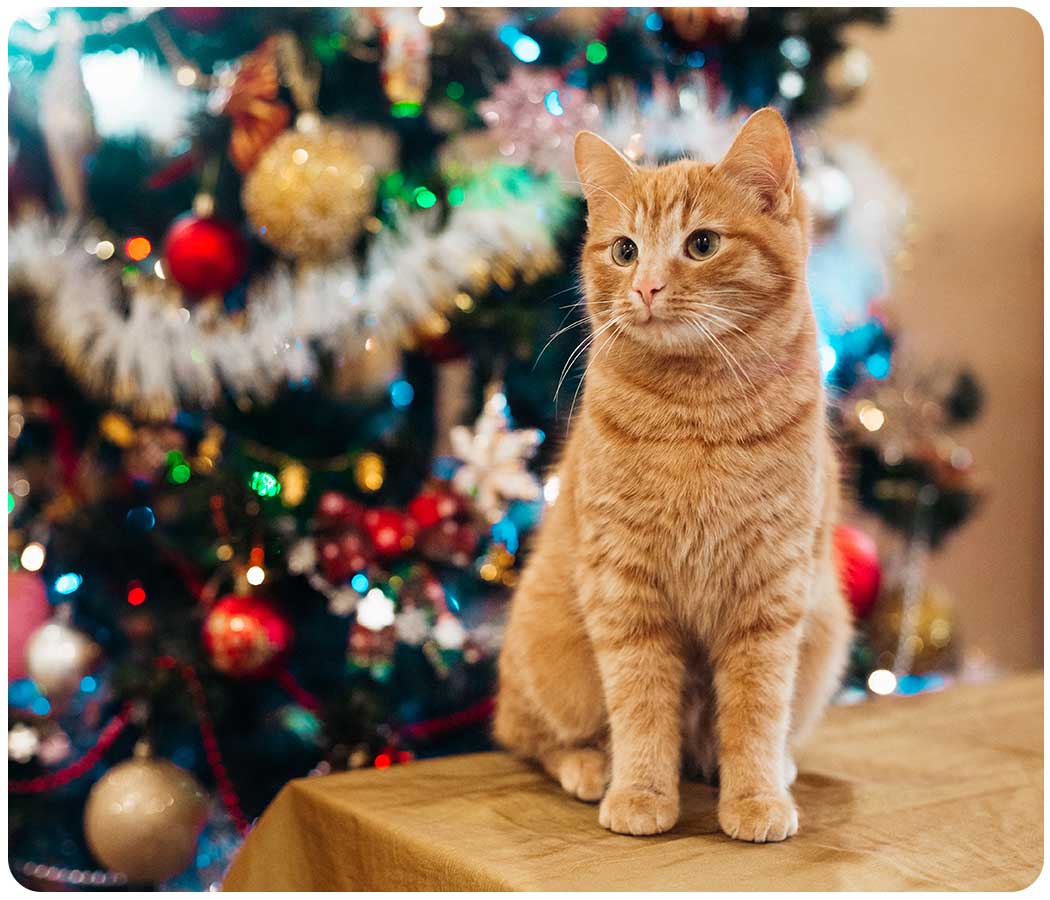
Should I Leave the TV on for My Cat? Pros, Cons, and Better Ideas
Should I Leave the TV
Leaving your furry friend home alone can be tough. You want to make sure they're happy and entertained, but is the TV the answer? Maybe you've even wondered if it could soothe separation anxiety.
Let's settle this debate once and for all. In this article, we'll cover:
- The surprising benefits of leaving the TV on for your cat
- Potential downsides to consider
- Creative alternatives to keep your kitty stimulated
Benefits of Leaving the TV on for Your Cat
Let's be honest – sometimes a little background noise makes us feel less alone. Turns out, your feline friend may feel the same way. Here's how the TV can benefit your cat:
Beats the Boredom
Cats are naturally curious creatures, and the ever-changing images and sounds from the TV can provide some much-needed mental stimulation. This is especially important for indoor cats who might not have as many opportunities for natural enrichment. Here's how:
- Flickering Movement: Fast-paced movement on the screen, like a butterfly flitting across a field or a fish darting in a tank, can trigger your cat's hunting instincts and keep them engaged.
- Novelty: New and interesting visuals can be mentally stimulating for cats. Even if they're not actively watching, glimpses of birds, squirrels, or other animals can provide a boredom-busting break from their usual routine.
- Interactive Features: Some cat-specific channels and apps offer interactive features that allow your cat to "paw" at the screen at virtual toys or chase laser pointers.
Company and Comfort
If your cat struggles with separation anxiety, the TV can offer a sense of companionship while you're away. The sound of human voices or familiar music can be surprisingly calming for some cats:
- Human Voices: The sound of familiar voices, even if it's coming from a talk show or documentary, can create a sense of normalcy and companionship for your cat when you're not home.
- Soothing Sounds: Classical music or nature soundscapes can have a calming effect on anxious cats. The predictability of these gentle sounds can create a sense of security.
- Routine: If you typically turn the TV on for your cat when you leave, the sound becomes a familiar part of their routine, reducing anxiety associated with your absence.
Drowns Out Scary Noises
Does your kitty freak out at the sound of thunder or fireworks? The steady hum of the TV can help mask those startling noises, creating a more peaceful environment:
- Blocks Out Sudden Sounds: The TV's constant hum can mask sudden, scary noises like thunder, fireworks, or loud traffic, preventing your cat from becoming frightened.
- Provides a Calming Distraction: The moving visuals and sounds on the TV can distract your cat from focusing on outside noises, reducing their anxiety.
Stimulates Hunting Instincts
Nature documentaries or even cat-specific videos with birds or rodents can trigger your cat's hunting instincts. While they may not be able to catch the critters on screen, it's still an engaging mental exercise:
- Visual Tracking: Moving prey on the screen engages your cat's natural instinct to stalk and track, providing mental stimulation.
- Simulated Hunting: Even though they can't physically catch anything, the act of batting or stalking prey on the screen allows your cat to practice hunting behaviors.
- Species-Specific Content: Cat-specific channels often feature high-definition footage of birds, squirrels, and other small animals, which can be especially stimulating for your feline friend.
Keep in mind that every cat is different. What works for one might not be ideal for another. Experiment to see how your cat responds to the TV. And remember, while the TV can offer some benefits, it shouldn't be a substitute for playtime, cuddles, and other forms of quality interaction with you.
Potential Downsides to Consider

While the TV can have its perks, it's important to consider these potential drawbacks before making it part of your kitty's daily routine:
Overstimulation
Just like humans, cats can become overstimulated. Here's how too much TV time can backfire:
- Heightened Anxiety: While the TV can occasionally be calming, too much noise and constant movement can actually increase anxiety in some cats.
- Disrupted Sleep Patterns: The flickering light and sounds from the TV can be distracting, especially if your cat sleeps nearby. This can interrupt their natural sleep cycle.
Repetitive Behaviors
Cats are prone to fixating on things, especially moving objects. This can lead to obsessive or repetitive behaviors:
- Obsession with the Screen: Some cats get too focused on the screen, leading to compulsive pawing or obsessive watching. This can become a distraction from healthier activities.
- Fixation on Reflected Light: The light from the TV reflects off walls and furniture, and some cats may fixate on these reflections. This can lead to repetitive chasing behaviors that aren't fulfilling.
Startling Sounds
For sensitive or skittish cats, sudden changes in volume can be very jarring:
- Volume Fluctuations: Shows and commercials can have drastically different volume levels. Sudden bursts of noise can be startling for your cat, especially if they're napping nearby.
- Scary Content: Even programs that seem benign to us might contain sounds that frighten your cat, like loud crashes, barking dogs, or sirens.
Energy Consumption
It's easy to forget, but leaving the TV on all day consumes a decent amount of energy. This can add up over time, increasing your energy bills and contributing to your footprint on the environment.
Better Alternatives for Cat Entertainment

The TV can be a fun distraction for your feline friend, but it shouldn't be their sole source of entertainment. Here are some superior options to keep your kitty happy, healthy, and mentally stimulated:
Window Wonderland
- Bird Feeder Bliss: Place a bird feeder outside a window where your cat has a perch. This provides them with hours of free "cat TV" as birds flutter about.
- Window Perch: Invest in a comfortable window perch so your cat can lounge and watch the world go by: birds, squirrels, and changing weather patterns will keep them engaged.
- Open the Blinds: Even if you don't have a bird feeder, opening the blinds or curtains gives your cat something to look at, especially if you have a busy street or trees.
DIY Fun
- Puzzle Toys: Food-dispensing puzzle toys tap into your cat's hunting instincts and make them work for their meal, providing mental and physical stimulation.
- Cardboard Creations: Turn empty boxes into tunnels, hideouts, and scratching posts! Cardboard is cheap, versatile, and cats love it.
- The Power of Paper: A simple crumpled-up piece of paper can be endlessly entertaining. Toss it around and let your cat chase it like a playful mouse.
Techy Toys
- Interactive Laser Pointers: Automatic laser pointers move randomly, enticing your cat into playtime sessions without you even lifting a finger.
- Tablet Games: There are many cat-specific apps with moving fish, mice, and other critters to keep your cat's paws and mind occupied.
- Robotic Toys: Some robotic toys can automatically move, squeak, or even dispense treats, encouraging your cat to swat and chase. Just be sure to supervise these.
Quality Time is King
- Playtime Sessions: Dedicate 10-15 minutes twice a day to engage your cat in interactive play with wand toys, feathers, or other favorites.
- Cuddles and Grooming: Physical affection and grooming sessions strengthen your bond with your cat and provide calming sensory experiences.
- Training Tricks: Cats are surprisingly trainable. Teaching them tricks is a fantastic way to provide mental stimulation and deepen the bond you share.
Remember: Variety is the spice of life, even for cats. Rotate toys and activities regularly to prevent boredom and keep your feline friend feeling their best.
Final Thoughts: Time to Channel That Inner Cat Whisperer!
You now have the tools to decide if leaving the TV on is the right choice for your furry companion. Remember, the best entertainment for your cat often involves simple pleasures, a dash of creativity, and plenty of quality time with you.
- Leave the TV on strategically: It can be helpful occasionally, especially to mask scary sounds or provide comforting background noise.
- Variety is key: Rotate toys, activities, and give your cat plenty of personal attention to fight boredom.
- Know your cat: Pay attention to how your feline friend responds to different stimuli. What works for one cat might not work for another.
Speaking of simple pleasures, have you explored
of personalized cat products? Treat your feline companion with
, stylish collars, or
. It's a perfect way to show your kitty how much you care.




